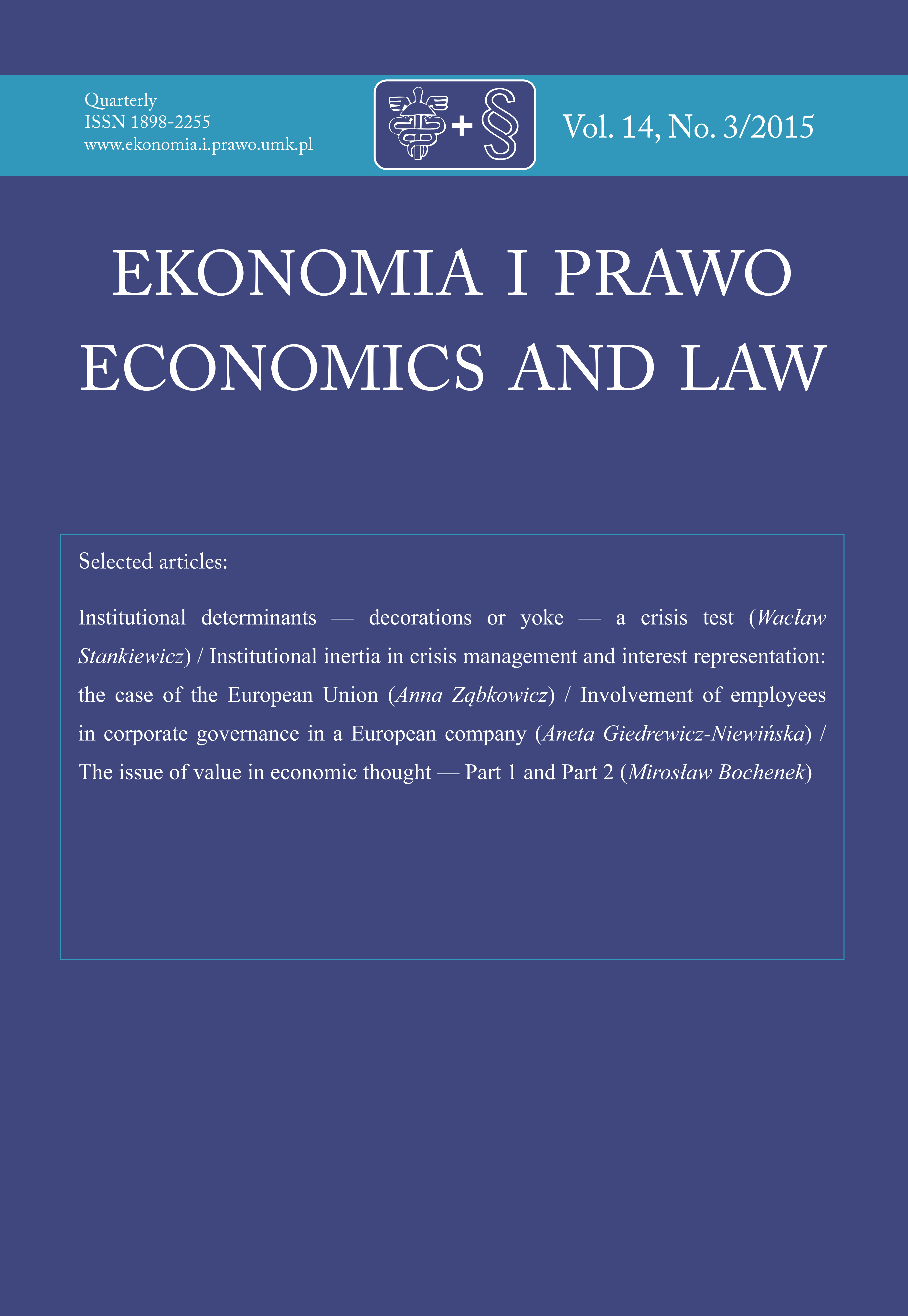THE ISSUE OF VALUE IN ECONOMIC THOUGHT — PART 1: THE EVOLUTION OF VIEWS FROM THE 5TH CENTURY BC TO THE MID-19TH CENTURY
THE ISSUE OF VALUE IN ECONOMIC THOUGHT — PART 1: THE EVOLUTION OF VIEWS FROM THE 5TH CENTURY BC TO THE MID-19TH CENTURY
Author(s): Mirosław BochenekSubject(s): Economy, National Economy
Published by: Wydawnictwo Naukowe Uniwersytetu Mikołaja Kopernika
Keywords: history of the economic thought; theory of value
Summary/Abstract: This paper is devoted to the evolution of views on the category of value, which for more than two thousand years has been recognized as one of the most important economic concepts. It appeared in the literature thanks to Herodotus in the 5th century BC. Aristotle distinguished use value and exchange value, and demanded the exchange of goods of equal value. St. Thomas Aquinas argued that prices of traded commodities should be of equal value, and that this value is determined by the amount of labour, production costs, needs and income of buyers, as well as the amount of goods offered for sale. W. Petty found that the amount of labour determines the value of goods. The views of the aforementioned thinkers were developed by J. Locke, J. Steuart Denham and R. Cantillon, the last of whom pointed out that market prices oscillate around the proper value of affected goods. For A.R.J. de Turgot, the purchasing power and needs determine the value set by contractors. However, G.F. Le Trosne acknowledged that proper value is determined by use value, production costs and the abundance of things. These views on the objectively existing value of exchanged products were taken over and developed by A. Smith and D. Ricardo, who made value the foundation of the scientific system of economics. This role of the theory of value in economics was not undermined even by the critics of the classical school, including K. Marx, A.H. Müller, and H.Ch. Carey, although for K. Marx, as for D. Ricardo, the theory of value was an element that integrates the whole theoretical system. In turn, the precursors of the subjective-marginal movement, among others, F. Galiani, E.B. de Condillac, A.A. Cournot, and J.M. Hoene-Wroński made the value of goods dependent on the subjective feelings of individuals satisfying their needs or performing work.
Journal: Ekonomia i Prawo. Economics and Law
- Issue Year: 14/2015
- Issue No: 3
- Page Range: 303-314
- Page Count: 12
- Language: English

